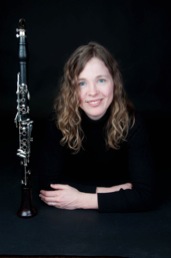Are you too old to learn a musical instrument? (This, and other myths shattered...)
There certainly is an impression in today's world that there are skills that can only be easily learned in childhood. The notion is that a child's brain is much more able to pick up new skills, and that somehow, an older brain has a greatly reduced ability to absorb new concepts. We all may have examples of this in our own lives. I've noticed that I frequently forget where I've put my keys, or what the extra item on my grocery list should have been. It seems as though my memory is not as sharp as it once was. Is this a sign of a decaying mind? Perhaps, but in all honesty, this is also not a skill that I am consciously working to develop and improve. If I took a memory-enhancing course, or practiced remembering things every day, I might find that in a few weeks, I would no longer waste time looking for my lost keys!
My own personal experience in teaching many adults to play musical instruments is that most people come into it with "mindset baggage", in relation to their own abilities to learn. The fact that they have actually gone out to get an instrument and signed up for lessons indicates that they have enthusiasm. I am still surprised however at how many "stories" I get from people at their first lesson as to why they will not succeed.
These "stories" include statements such as:
"I have no natural sense of rhythm."
"I am not a good reader, which means that I will not be able to read music easily."
"In school, I was kicked out of the choir because my sense of pitch was so bad. That must mean that I have no natural musicality."
"I know that I am too old to really grasp the instrument, but I do want to learn as much as I can."
"I'm the kind of person who has never been very good at using my hands."
"I'll never sound as good as I want to sound."
Have you heard yourself say any of these things? Perhaps these statements do not represent not your story, but you do have limiting beliefs about your ability to succeed at playing your instrument. I challenge you to identify and write down any limiting beliefs that you have. My personal belief is that each one of these statements is a barrier that we put in place ourselves that actually inhibits our growth. They are very powerful, and in adults, may be one of the biggest things holding back our progress.
I would like to counter each of these statements by telling you that your brain has an amazing capacity to continue learning new skills at any age. If you believe this, then each limiting belief is an opportunity to recognize an area in your life that could benefit from new growth and a new approach. For example, let's look at the statement, "I have no natural sense of rhythm." Did you know that we learn rhythms in patterns, in the same way that we learn to read by first sounding out letters, syllables, and entire words. If I asked you to read the word "prominterastulate" out loud, could you? You probably have never seen that word before (since I believe that I just made it up); however, the pattern-part of your brain recognizes components of it. It likely broke it down something like this: pro-mint-er-ast-u-late. When we know simple rhythm patterns, we can easily piece them together into more complex rhythms. We just have to start with our rhythmic ABC's. If you feel that you have a bad sense of rhythm, you likely have never been given a systematic way to learn the basic patterns of rhythm. I tell most of my students that I am always happy to hear that rhythm is one of their biggest challenges, because in my experience, it is also one of the easiest things to learn to succeed at.
What do scientists say about this? Dr. Carol Dweck of the Department of Psychology at Stanford University has done a great deal of research on how our brains learn. Her book, Mindset, clearly demonstrates that people can continue to learn any new skill through perseverance and systematic learning. Here is a quote from her writings:
"People with a fixed mindset believe that their traits are just givens. They have a certain amount of brains and talent and nothing can change that. If they have a lot, they're all set, but if they don't... So, people in this mindset worry about their traits and how adequate they are. They have something to prove to themselves and others.
People with a growth mindset, on the other hand, see their qualities as things that can be developed through their dedication and effort. Sure, they're happy if they're brainy or talented, but that's just the starting point. They understand that no one has ever accomplished great things without work - not Mozart, Darwin, or Michael Jordan - without it took years of passionate practice and learning."
I see, time and time again, adults who struggle against their own limiting beliefs. As soon as I can convince them that nearly every challenge on the instrument can be overcome simply by taking a good learning system and applying it regularly, they do in fact succeed. It is often much easier than they expected.
What are your limiting beliefs? If you can identify some, but don't know how to get past them, please share them with me. Perhaps, I can dedicate an upcoming Clarinet Mentors newsletter exclusively to strategies to help you transform these beliefs into a plan for success. I want you to experience the joy that comes from shattering these outdated myths about yourself.
I used to believe that I had a lot of natural ability at playing the clarinet, but that I simply did not have the dedication needed to become a good player. Many of my teachers in grade school would say that I had talent, but I just didn't work hard enough. These teachers were experts, I believed them. The way this turned into a limiting belief for me was that I somehow envisioned "dedication" as a talent that I was filled with at birth. Somehow, I thought I didn't get my full share and therefore, I would never be able to work hard at anything in my life. You can see how this could be a problem. If I fully embraced this belief, then I would have had a great excuse to never apply myself to anything, and justify it with my "dedication-deficit disorder". A huge turning point for me was when a knowledgeable teacher gave me a very systematic plan to learn some very challenging pieces. He gave me a step-by-step recipe for how to sit down and master this music in a week or two. I followed the system, and found myself having success right away. It was so exciting, that I stayed in the practice room much longer than I would have previously. Each time I practiced, things went better and became easier. In spite of myself, I realized that at the end of two weeks, I had learned something that I did not think I was capable of learning. I had worked very hard, and I was seeing the results of those efforts. After a few more weeks of this, it suddenly dawned on me that I was acting a lot like a dedicated person would. "Maybe I can act like a dedicated person", I thought (even though I couldn't actually be one). I kept pretending for a long time, and finally had to admit that I actually COULD be quite dedicated to my craft. I learned "dedication" as a skill, and now I use it in many areas of my life.
I want you to have a system to counter any of your limiting beliefs. If there is an area of performance that you find challenging musically, be assured that there is a system that you can learn in order to overcome it. Nobody should spend their time in frustration mode, when we all have the ability to fix our problems if we just know how to do it.
If you have any thoughts or comments on limiting beliefs in musicians, please share them with me by replying to this email.


